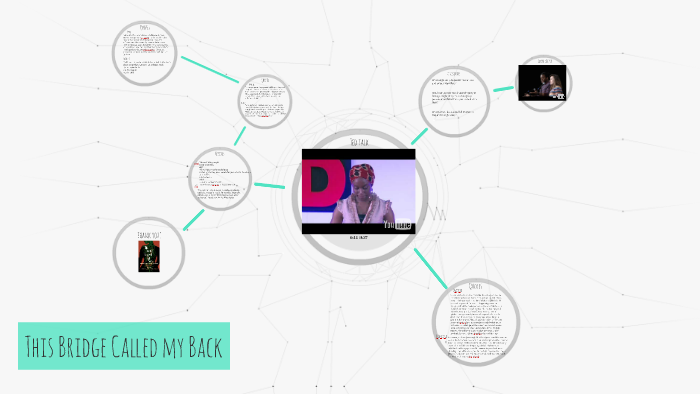

I write to record what others erase when I speak, to rewrite the stories others have miswritten about me, about you. I write because life does not appease my appetites and hunger. By writing I put order in the world, give it a handle so I can grasp it. Because the world I create in the writing compensates for what the real world does not give me. Because I must keep the spirit of my revolt and myself alive.

Why am I compelled to write? Because the writing saves me from this complacency I fear.Quotes Page numbers refer to the Fourth Edition (SUNY Press: 2015) Anzaldúa first published in 1981 by Persephone Press. This Bridge Called My Back: Writings by Radical Women of Color is a feminist anthology edited by Cherríe Moraga and Gloria E. It is a major statement from one of our most important public intellectuals.I write to record what others erase when I speak, to rewrite the stories others have miswritten about me, about you. A Xicana Codex of Changing Consciousness reveals key transformations in Moraga's thought the breadth, rigor, and philosophical depth of her work her views on contemporary debates about citizenship, immigration, and gay marriage and her deepening involvement in transnational feminist and indigenous activism. Yet aspects of her thinking have changed over time.

Thirty years after the publication of Anzaldua and Moraga's collection This Bridge Called My Back, a landmark of women-of-color feminism, Moraga's literary and political praxis remains motivated by and intertwined with indigenous spirituality and her identity as Chicana lesbian. Moraga describes her deepening grief as she loses her mother to Alzheimer's pays poignant tribute to friends who passed away, including the sculptor Marsha Gomez and the poets Alfred Arteaga, Pat Parker, and Audre Lorde and offers a heartfelt essay about her personal and political relationship with Gloria Anzaldua. She considers decade-defining public events such as 9/11 and the campaign and election of Barack Obama, and she explores socioeconomic, cultural, and political phenomena closer to home, sharing her fears about raising her son amid increasing urban violence and the many forms of dehumanization faced by young men of color. Combining moving personal stories with trenchant political and cultural critique, the writer, activist, teacher, dramatist, mother, daughter, comadre, and lesbian lover looks back on the first ten years of the twenty-first century. Moraga, one of the most influential figures in Chicana/o, feminist, queer, and indigenous activism and scholarship. A Xicana Codex of Changing Consciousness features essays and poems by Cherrie L.


 0 kommentar(er)
0 kommentar(er)
